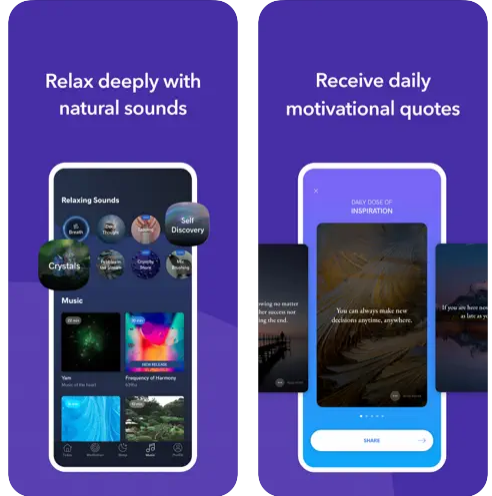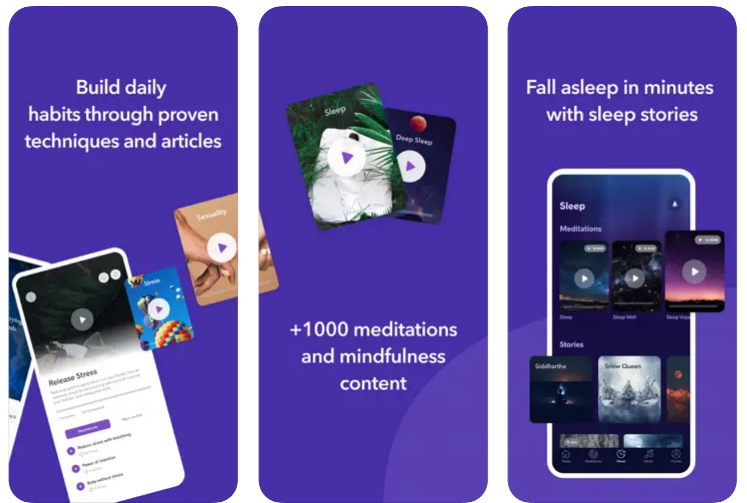Anúncios
Meditation is much more than simply sitting in silence. It is an inner journey that invites us to slow down, reconnect with our true selves, and cultivate a full awareness of the present moment.
Anúncios
By practicing meditation regularly, we can discover an ocean of tranquility within ourselves, regardless of external circumstances.
Here we offer a variety of resources and information to help you explore and deepen your meditative practice.
We are here to provide a welcoming and accessible space where you can find reliable guidance and inspiration to bring meditation into your daily life.
Anúncios

So, join us on this journey of self-discovery and transformation.
About Meditation
Meditation is an age-old practice that involves directing attention in a conscious and focused way to the present moment.
By meditating, we seek to calm the mind and welcome our thoughts, emotions, and sensations without judgment. It is a moment of tranquility in which we allow ourselves to simply be, observing the flow of thoughts without clinging to them.
Through regular practice, we can experience a number of benefits, both on a physical and mental level. It helps reduce stress, anxiety and blood pressure, improving emotional well-being and promoting a sense of inner calm.
Meditation does not require special equipment or a specific environment. It can be practiced at home, at work, or in any quiet place where we can focus and disconnect from external distractions.
While it can be challenging at first, with practice and patience, it is a means for us to reconnect with our authentic self, finding balance, clarity, and presence in our daily lives.
It’s a personal journey and each person finds their own way. Be open to exploring different techniques, finding the one that resonates with you, and allowing meditation to become a regular practice in your life.
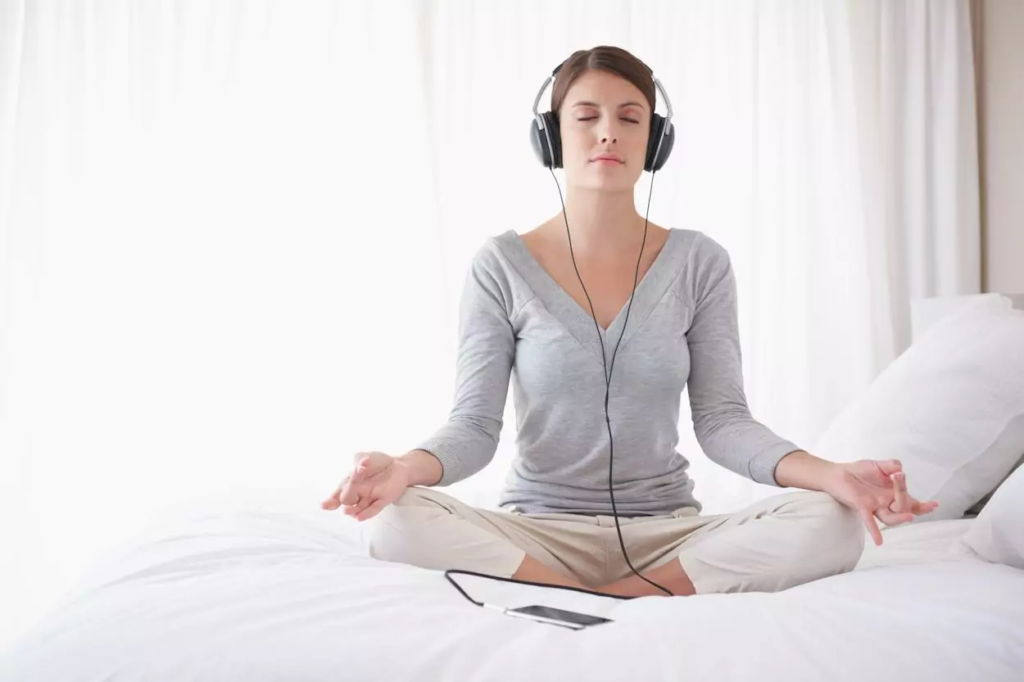
Meditation Techniques
Mindfulness Meditation
This technique involves directing your attention to the present moment by consciously observing your bodily sensations, thoughts, emotions, and the environment around you.
You can focus on your breath, physical sensations, or a specific object. The idea is to accept and observe everything without judgment, only by noticing what arises in your consciousness.
Guided Meditation
In this technique, you are led by a recorded voice, a teacher, or a meditation app.
The person or audio provides step-by-step instructions, helping you relax, visualize images, or develop a state of calm awareness.
This technique can be especially useful for beginners as it provides guidance and support during practice.
Transcendental Meditation
Transcendental meditation is a practice in which you silently repeat a mantra, a sound, or a specific word, to calm the mind and achieve a state of tranquil awareness.
This technique seeks to transcend thoughts and access a deeper level of awareness and inner peace.
Meditation in Motion
This technique involves practicing meditation during physical activities such as walking, running, dancing, or practicing yoga. The focus is on mindfulness of body movements, physical sensations, and breathing as you perform the activity.
It is a way to combine movement with mindfulness, bringing about a greater connection between body and mind.
Vipassana Meditation
This technique focuses on deep observation of the transient nature of all mental and physical phenomena.
It involves observing bodily thoughts, emotions, and sensations without attachment or aversion, cultivating wisdom and understanding of impermanence and the nature of reality.
These are just a few popular meditation techniques, but there are many other approaches available.
It’s important to try different techniques and figure out the one that resonates with you the most. Remember that regular practice and patience are essential to getting the benefits of meditation.
Meditation for Beginners
Meditation may seem like uncharted territory for beginners, but it is an accessible and rewarding practice that can bring immense benefits to the mind and body. If you’re new to meditation, here are some tips to get started:
- Find a quiet location: Choose a calm and quiet environment where you can feel comfortable.
- Set a time: Set aside a few minutes for meditation in your daily routine. As you become familiar with the practice, you can gradually increase the meditation time.
- Adopt a comfortable posture: Sit in a position that is comfortable for you. It can be in a chair with your feet resting on the floor, on a meditation cushion, or in a lotus position. Keep your spine erect but relaxed, and rest your hands on your lap or knees.
- Focus on the breath: Focus on the sensation of the breath going in and out of your body. Be present in the moment, watching each inhale and exhale.
- Be open to sensations and thoughts: During meditation, it is natural for the mind to wander. When you notice that your mind has gotten lost in thought, gently bring your attention back to the breath. Don’t worry about eliminating all thoughts, just observe them without getting involved.
- Try different techniques: Try different approaches to find the one that best suits you.
- Be consistent: Establish a regular practice by dedicating specific time each day to meditation. The more you practice, the more natural it becomes.
Incorporating Meditation into Life
Although it may seem challenging at first, with patience and practice, it is possible to establish a meditation habit that integrates naturally into the daily routine.
The first step is to set aside a time of day for the practice of meditation. It can be early in the morning, before you start activities, or at the end of the day, as a way to relax and slow down.
By creating a conducive environment, you can make the meditation experience even more enjoyable. Choose a quiet, comfortable space where you can sit or lie down without feeling uncomfortable.
Add elements such as candles, incense, or soothing music if it helps create a relaxing atmosphere.
Start with short sessions, five to ten minutes, and gradually increase the time as you feel more comfortable.
Remember that the quality of meditation is more important than the amount of time devoted to it. Be present and open to the experiences that arise during practice, without judging or charging yourself.
Find support and inspiration in the meditation community. You can join local groups, workshops, or take advantage of online resources such as videos or articles for additional guidance and motivation.
Share your journey with others and exchange experiences to strengthen your commitment to the practice.
Remember that meditation is an ongoing process of self-discovery and personal growth. Be open to the ups and downs that may arise by maintaining a kind and compassionate attitude toward yourself.
With dedication and consistency, meditation can become a valuable and enriching part of your daily life, bringing tranquility, mental clarity and emotional well-being.
One example of rotine that you can find in the internet:

Benefits
- Stress reduction: Meditation is known to reduce stress and anxiety levels by promoting a sense of calm and tranquility.
- Increased mental clarity and focus: By training the mind to focus on the present moment, it helps reduce distraction and dispel mental agitation, allowing you to become more efficient and productive in your daily tasks.
- Promoting emotional health: Regular meditation practice can help regulate emotions by promoting greater emotional balance. It allows you to develop a greater awareness of your emotions, helps you deal with emotional stress, and promotes resilience in the face of life’s challenges.
- Improved overall well-being: Meditation has been linked to a greater sense of well-being and overall satisfaction. It helps cultivate a more positive attitude, increases self-compassion, and promotes a more optimistic outlook on life.
- Improved physical health: In addition to the mental and emotional benefits, meditation can also have positive impacts on physical health. Studies show that regular meditation practice can lower blood pressure, strengthen the immune system, improve sleep quality, and relieve chronic pain.
- Increased mindfulness: Meditation promotes mindfulness, that is, the ability to be completely present in the present moment without judgment. This allows you to live each moment with more intensity, savoring the experiences and connecting more deeply with yourself and the world around you.
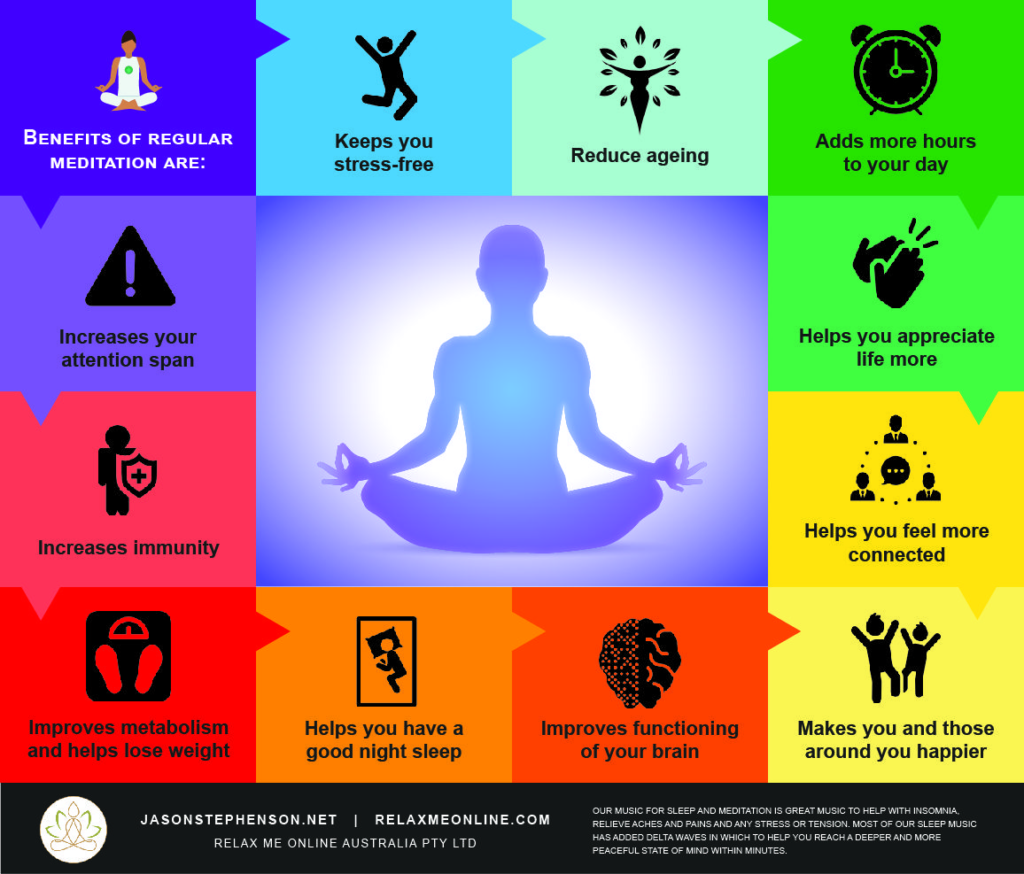
And these are just a few of the many benefits that meditation can bring.
Remember that the experience is individual and the benefits may vary from person to person.
By cultivating a regular meditation practice, you can reap these benefits and experience a more balanced, mindful, and satisfying life.
Some Apps That Can Help You
Headspace (4,8⭐)
The Headspace app offers a wide variety of guided meditation programs, designed to meet the needs of different users.
From basic meditations for beginners to more advanced programs, addressing topics such as stress management, sleep, anxiety, focus, self-compassion, among others.
The meditations are conducted in clear and direct language, making it easy to understand and apply the meditation techniques, especially for those just starting out.
Headspace also includes additional features such as breathing exercises to help calm the mind and body, meditations specific to times of stress or anxiety, mini meditations for breaks throughout the day, and sleep programs to help relax before bed.
The app offers a free program with a series of basic meditations for beginners. In addition, there is a premium subscription option that gives you access to a vast library of guided meditations and additional features.
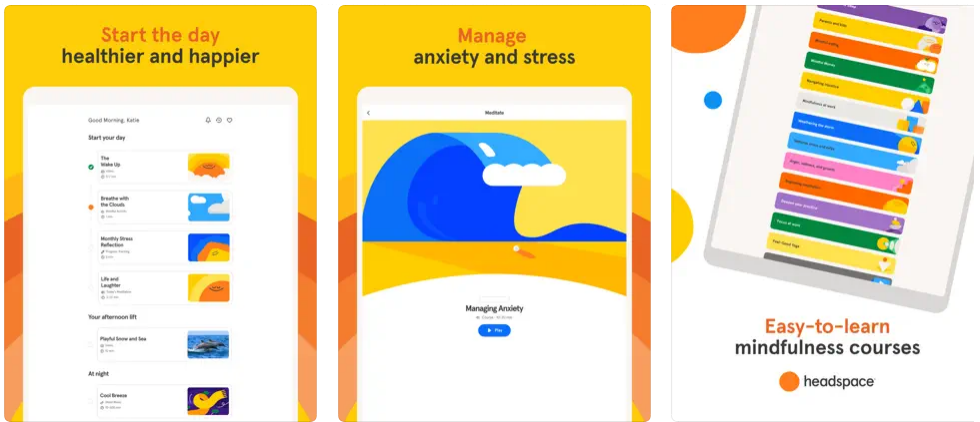
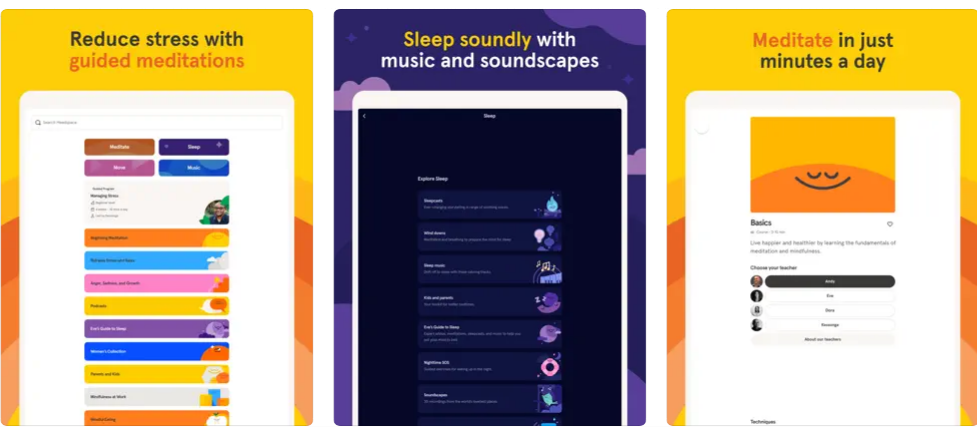
Calm (4,6⭐)
The Calm app offers meditations for beginners, as well as themed programs to help with anxiety, sleep, self-esteem, and other aspects of mental and emotional health.
In addition to meditations, Calm also offers a library of relaxing music, nature sounds and bedtime stories, with gentle narrations that help induce a state of deep relaxation and improve sleep quality.
A notable feature is the option of unguided meditation, where you can set a timer and meditate in silence, accompanied only by quiet sounds such as sea waves or gentle rain.
In addition, Calm includes breathing exercises to help reduce anxiety and stress, and offers a “Calm Kids” function for children, with guided meditations and relaxing stories designed to help children develop self-regulation skills and emotional well-being.
The app has a free version with limited features, while the premium subscription allows full access to all the programs and features of the app.

Meditopia (4,8⭐)
The Meditopia app offers a wide variety of guided meditations in different styles and durations, tailored to meet the needs of beginners and more advanced practitioners.
It covers topics such as stress management, sleep, anxiety, self-compassion, self-love, among others.
The app offers meditations in multiple languages, with different voices and cultural perspectives, which allows users to choose an experience that resonates with their identity and background.
In addition to guided meditations, Meditopia also offers mindfulness exercises, learning trails on wellness-related topics, and journey programs to help users cultivate healthy, positive habits in their daily lives.
The app also has a feature called “SOS Sessions,” which offers meditations and brief exercises for moments of immediate stress and anxiety, providing a useful tool for calming the mind in challenging situations.
Meditopia offers a combination of free content and premium subscription, which unlocks full access to all meditations and additional features.
